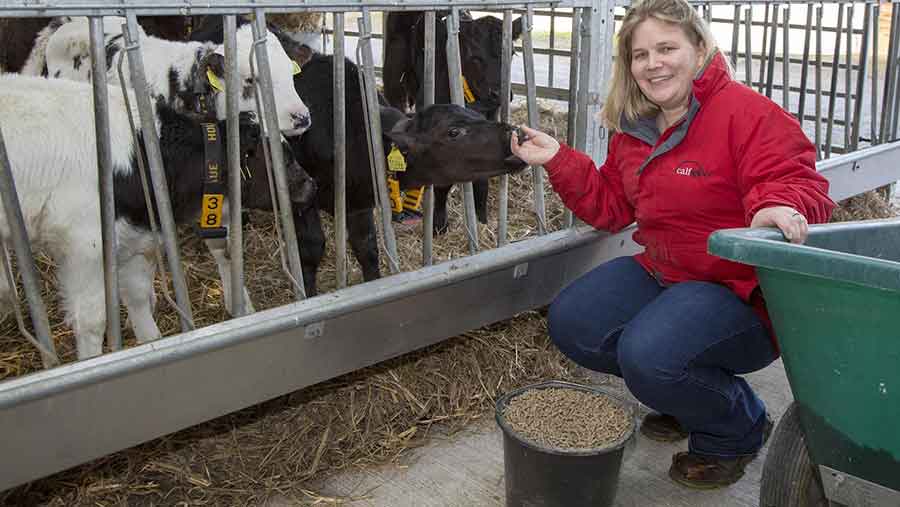Trial reveals beef calf growth benefits of nutritionally improved straw
Adding nutritionally improved straw (NIS) to the diets of youngstock can aid appetite and feed conversion efficiency, the results of a trial suggest.
During a nine-week study carried out by feed company Wynnstay, beef calves fed a weaning ration containing NIS achieved average daily growth rates 10% higher than those in a control group.
Conducted on Uphampton Farm, near Leominster, Herefordshire – a contract rearing business run by Emma Roberts (pictured here) that turns out around 700 12-week old calves a year – the trial saw two batches of two-week old calves fed different diets.

See also: Trial reveals benefits of using nutritionally improved straw
Calves were taken past weaning over the course of nine weeks, with the control group fed milk and a typical calf starter nut, and the other group receiving milk and a starter nut containing NIS rather than soya hulls.
Over the course of the nine-week study, calves fed starter nut containing NIS gained on average 1.1kg a day, compared with an average of 0.99kg in the control batch.
Impressed with the results of the trial, Wynnstay has reformulated its Start & Wean nut product to include NIS as standard.
Balanced starter
Steve Brown, ruminant feeds product manager at Wynnstay, says they have found NIS to be a “good balancer”.
“A balanced starter feed is crucial but it is very easy to get out of balance with the key elements of starches, high quality protein and digestible and functional fibre,” he says.
“The straw goes through an alkali treatment process which breaks open the structure of the straw allowing rumen bugs better access to the fibres and, in addition, providing a source of sodium bicarbonate, a natural buffer for the rumen.
“NIS provides slow release energy, counteracting acidosis, which can be a problem because it depresses appetite,” he adds.
Further trials are under way to examine the benefits of replacing all forage in the youngstock diet with NIS pellets, which Wynnstay says would be convenient for calves reared in single hutches where keeping forage dry is a challenge.
